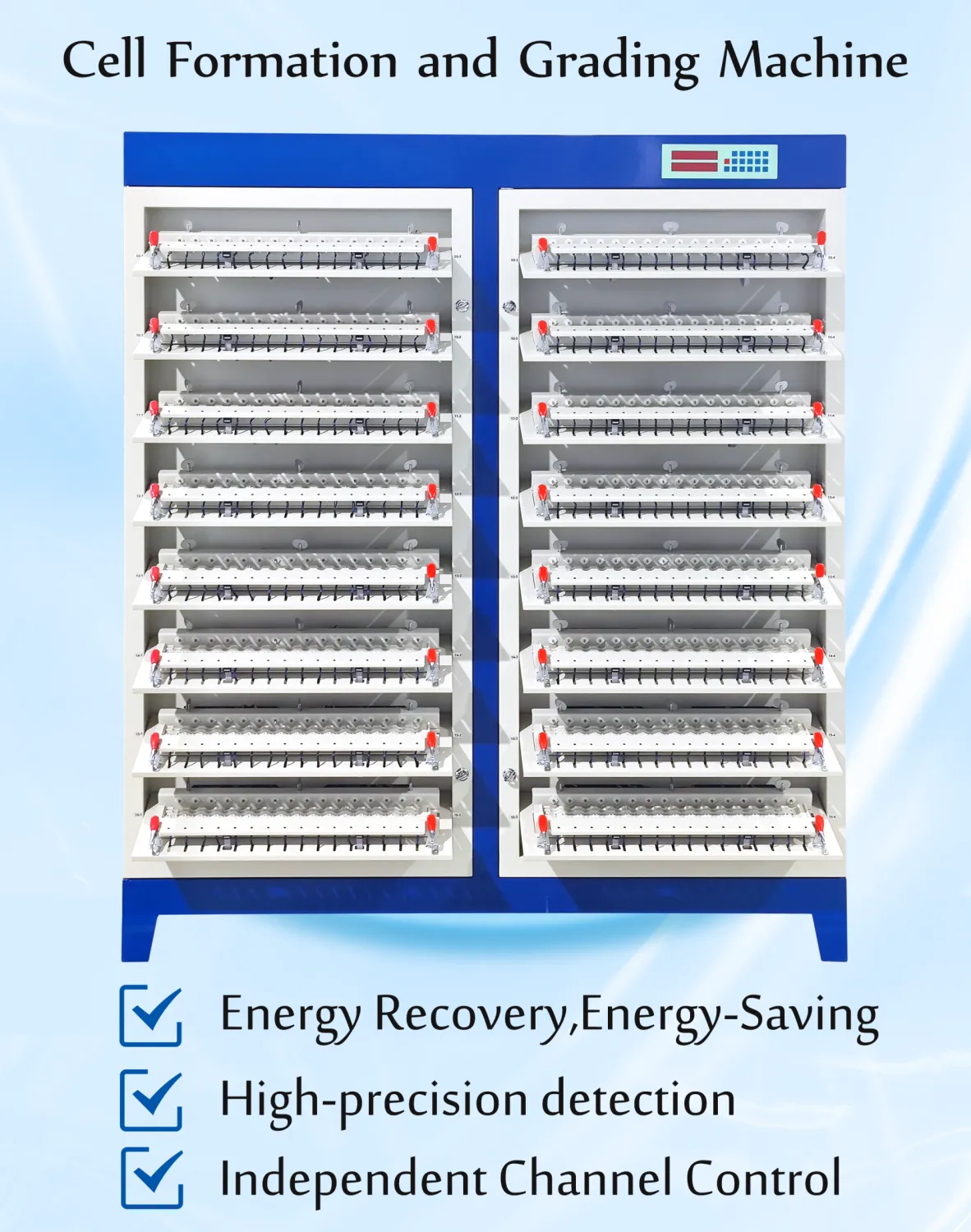Cell Formation and Grading Machines play a crucial role in the production of lithium batteries, serving as a vital step before the batteries enter the market. Their primary functions include the initial charge-discharge activation (formation), performance testing, and capacity and performance grading. Here’s a detailed breakdown of their specific roles in lithium battery production:
1.Initial Activation - Formation
Newly manufactured lithium batteries require activation of their internal structures before they can be used. Cell Formation and Grading Machine first performs an initial charge-discharge cycle, known as formation. This process has two main purposes:
a. Formation of the SEI Film: During the first charge-discharge cycle, a thin Solid Electrolyte Interphase (SEI) film forms on the surface of the anode. This film effectively prevents electrolyte decomposition while allowing lithium ions to pass freely, which is critical for the battery's performance and longevity.
b. Activation of Electrode Materials: The formation process also activates the positive and negative electrode materials, optimizing them for subsequent charge-discharge cycles.
2.Performance Testing
After formation, the cabinet conducts several performance tests on the batteries, including:
a. Capacity Testing: Measuring the actual capacity of the battery through standardized charge-discharge cycles to confirm it meets design specifications.
b. Internal Resistance Testing: Assessing the internal resistance to evaluate battery performance under various loads.
c. Self-Discharge Rate Testing: Checking how much capacity the battery retains after being at rest for a certain period, to evaluate its self-discharge characteristics.
d. Cycle Life Estimation: Providing a preliminary assessment of how well the battery maintains capacity over a specified number of charge-discharge cycles.
3.Capacity and Performance Grading - Grading
Finally, the cabinet grades the batteries based on the results of the tests. This grading process is vital for several reasons:
a. Enhancing Battery Pack Consistency: Ensuring that all batteries in a pack have similar capacity and performance parameters, which is crucial for stable operation.
b. Optimizing Inventory Management: Allowing companies to manage inventory effectively by categorizing batteries into different grades, thus preventing valuable resources from being wasted on low-value applications.
c. Meeting Market Demands: Different grades of batteries can cater to various customer needs—high-end electronics may require top-performing batteries, while low-cost applications might be satisfied with lower-grade options.

Overall Impact
Cell Formation and Grading Machines serve as a bridge in the lithium battery supply chain, ensuring quality before the batteries leave the factory and providing consistent components for downstream battery assembly. This series of testing and grading processes not only enhances the reliability and safety of the batteries but also lays a solid foundation for optimizing product performance and controlling costs in the end products.



